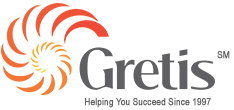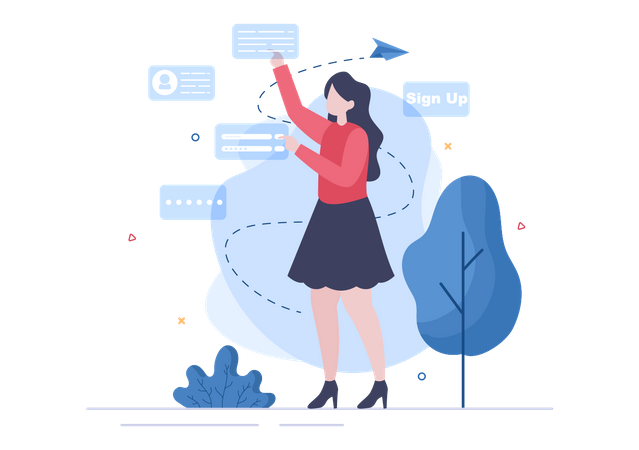What is HR management in an organization is a question that is often asked by companies and their HR departments as they struggle to work out the best way to benefit their businesses. The first step to answer this question is to define Human Resource Management. HMR is basically an approach that is implemented to help an organization improve their employment practices, human resources department and overall management of the employees within the organization. By analyzing each employee’s needs and circumstances it is possible to develop policies that will help your company benefit from a strong and thriving workforce. Let’s see more about the roles and responsibilities of HR in a company.
Many people are put off when they hear the word ‘HR’ and assume that such a large number of dedicated individuals function solely within HR departments. The truth is that HR managers are just as much linked to the rest of the workforce as any other member of staff. HR managers will often lead staff workshops and assist with projects to improve company morale, as well as implementing a rewards program that rewards workers who prove to be effective contributors to the success of the company. Furthermore, Human Resource Managers often conduct interviews and select new candidates for positions within the organization, helping to recruit top talent, while also ensuring that HR maintains links with outside departments and assisting with any difficulties that may arise during the interviewing process.
So why is Human resource management in an organization so important? For a company to run efficiently and effectively it is necessary to have an understanding of all the roles and responsibilities that each employee has within the business. While some people within an organization may be seen as being purely responsible for their role, HR management must also understand the culture of the organization, the strengths and weaknesses of the staff, as well as the skills and potential of each team member. All of this information will go towards a sound strategy for the day-to-day running of the organization and, if HR is well informed, can help to provide the direction and support your organization needs.
Roles of HR in an organization
What are the roles of HR in an organization? HR is the department or personnel that manages the personnel department. There are actually several different roles of HR, however, the most important are as follows:
Human Resource Department
The first role of HR is to develop and maintain an overall Human Resource Department. As a manager or a director, this person will have a role and responsibilities of creating a workplace that is conducive for employees, providing them with benefits and compensations, managing the employment contract and the benefits of an employee. When there are too many employees, HR can step in and help to run the HR department. In this case, HR is responsible for recruiting, training, overseeing, and hiring new employees. It also has the power to terminate an employee if found incompetent or unprofessional. The manager or director can delegate different duties and responsibilities to HR.
This is where recruitment comes into play. If you want to get a particular skill or expertise, you need to be able to attract the right talent. Recruitment is often used when there is an excess of people in a certain department. For example, there could be a need for nurses in the health department, but many of the positions are already filled. An HR department can attract and hire the best nurses available for the position. This will make it easier for the department to provide good health care to the patients Conduct disciplinary actions.
The HR department also handles any disciplinary action against an employee, such as discrimination, harassment, or other related issues. It can resolve the matter professionally or personally between the employee and the employer. The former can make a case against the latter. On the other hand, the latter would be upset and likely file a grievance if they feel discriminated against.
Roles of HR in organization to Monitor Employees
The HR department is also involved in monitoring the activities of an employee. An HR employee will look into the productivity of the employees, record their work performance, and determine any complaints or unsatisfactory work conditions. They will also make recommendations to the management as to how to improve the conditions of their employees. In addition, a human resource professional can find out about the education, training, and other necessary information about an employee. He can also assist with employment screening, helping to find out if someone is eligible for employment, or can at least give advice on what kind of employment would be best for a particular person.
Roles of HR organization to provide Customer Service Skills
There are many skill sets that are important to HR, such as customer service skills. Customer service skills include understanding customers’ concerns and needs, dealing with angry or irritated customers, and being polite to all customers. The department will use technical skills, such as understanding payroll laws and regulations, and collecting and preparing data in a suitable format.
Improve Employee Skills
Another key role of the human resource department is to train employees. In order to be effective at this, the department must have enough employees and an understanding of what type of employee training is needed. The most common methods of training include educational seminars and workshops, on the job training, and on-the-job activities. There are also some companies who choose to implement their own training programs for new employees. Training programs are very important because they help to improve an employee’s skill set, which will in turn increase their productivity.
Roles of HR play an important role in any organization. This is why it is important to keep a good balance between the different roles. It is important to hire an individual who has the right skills to do the job, but also has the ability to learn new skills as well. Also, it is important for an HR professional to interact with management effectively, not just as an employee, but as a member of the organization. All individuals involved in the hiring process should understand the Roles of HR and develop good communication skills, since it is one of the most important aspects of the job.




